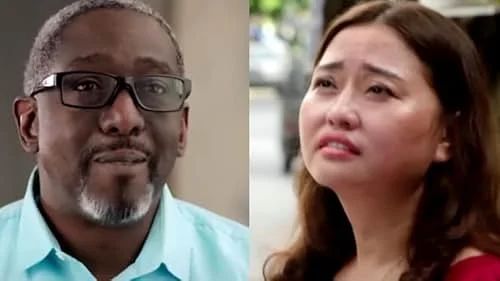
90 Day Fiancé Star Riley Diego Hits Rough Patch And Points Fingers At TLC
Riley Diego, a familiar face from the hit reality series 90 Day Fiancé, has recently opened up about facing significant hardships following his stint on the show. His public statements, in which he seemingly blames TLC — the network behind the franchise — have stirred both concern and debate among fans. The situation raises pressing questions about the impact of reality TV on its stars and how production portrayals can shape, or damage, their personal and financial wellbeing.
Audiences were first introduced to Riley Diego during his tumultuous relationship with Vietnamese partner Violet Tuyet. Even from their early scenes, the couple’s dynamic was tense, marked by frequent arguments and an undeniable clash of personalities. Many viewers predicted the breakup well before it occurred, citing the numerous red flags visible throughout their televised journey. Unlike some couples who resolve their issues off-screen, Riley and Violet’s split seemed an inevitable conclusion to their rocky storyline.
In the aftermath, Riley has candidly shared that his participation in the show may have contributed to his recent financial and personal difficulties. While detailed accusations remain unclear, his message implies TLC’s portrayal and the fallout from public exposure have negatively affected his current circumstances. This revelation has fueled a larger conversation about the responsibilities of reality TV production companies and the real-life consequences faced by the stars once the cameras stop rolling.
Comparing Riley’s situation to other franchise alumni highlights a spectrum of post-show experiences. While some, like Angela Deem or Big Ed, have capitalized on newfound fame via social media influence and spinoffs, others like Riley suggest that editing choices and public scrutiny can lead to a more challenging personal aftermath. The differences underscore how unpredictable the trajectory can be for reality stars — sometimes rocketing to popularity and endorsement deals, or conversely grappling with reputational damage and limited opportunities.
Beyond Riley’s struggles, recent entertainment headlines buzz with updates about TLC’s upcoming content. 90 Day Fiancé continues to expand, with Season 11’s “More to Love: How Deep Is Your Love” and “First Look: Where Did Our Love Go” both airing this April. This constant churn of fresh stories may overshadow former cast members’ difficulties, creating a cycle where yesterday’s TV celebrities quickly fade into obscurity unless they proactively manage their newfound fame.
As Riley’s candid comments circulate online, they offer viewers a reminder to approach reality programming with a critical eye. The curated narratives on screen can have long-lasting, sometimes detrimental, effects on those involved. For fans, it’s a chance to reflect on the real-life toll of their entertainment — and perhaps to extend empathy toward these individuals beyond simply critiquing edited personas.
Ultimately, Riley Diego’s situation sheds light on a broader issue within reality TV culture: the fine line between fame and vulnerability. His experiences urge networks and audiences alike to reckon with the ethics of televised storytelling. What responsibility do broadcasters hold after the cameras stop? As 90 Day Fiancé continues to captivate millions, discussions sparked by Riley’s hardship may yet lead to meaningful conversations about protecting those whose lives are shared for entertainment.
What do you think about Riley Diego blaming the network? Can reality TV production be fairer to its stars? Share your thoughts in the comments and join the ongoing conversation.